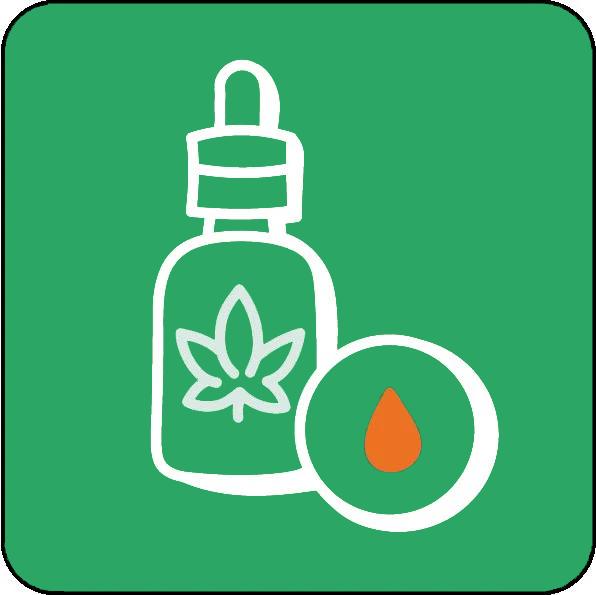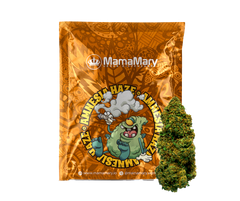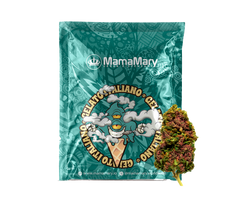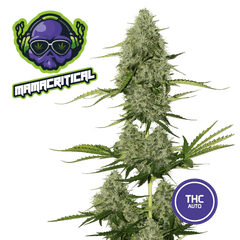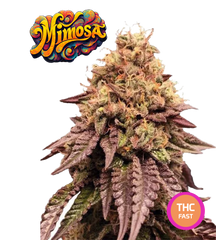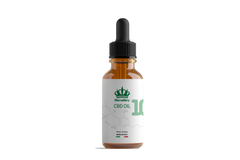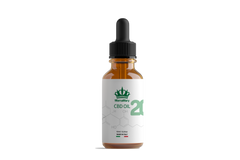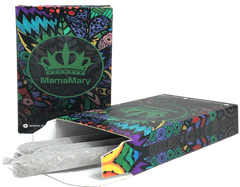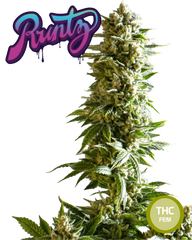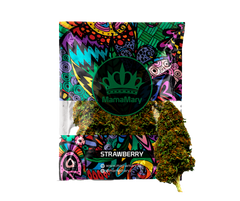Discovering the synergy between mango and cannabis is a fascinating journey into the world of flavors and benefits. Cannabis light strains infused with notes of mango offer an exotic aroma that not only delights the palate, but also enhances the experience of relaxation. With the rise of legal marijuana, enthusiasts can explore CBD-based options, taking advantage of the effects of hemp. Being of legal age is essential to access these resources, making each discovery an opportunity to appreciate a new dimension of cannabis. Join us on this journey to discover how mango and cannabis can harmonize in a unique and surprising way.

Have you ever heard of the mango-cannabis combination? For some time now, there have been rumors among experienced stoners that consuming mango while using weed amplifies the effects, giving you a long-lasting but controlled high. But what does science say about it? Is it just a placebo effect or does it really work?
If you're a fan of these tropical fruity delights, you'll be happy to learn: the "mango effect" is real !
But what does this incredible combo produce? The answer is clear: Myrcene .
Myrcene is a terpene . And, in fact, it is one of the most prominent terpenes found in cannabis (especially in indica- dominant strains , where terpene content can range from 0.5% to 3% or more). Myrcene is also a sedative and is thought to work synergistically with THC. And, why do many myrcene-rich indica-dominant strains tend to produce heavy, stoned highs?
Interestingly, eating a mango before consuming cannabis can amplify the effects of the cannabis plant. Mango, a plant that resembles fruits like papaya in its aromatic notes, also contains a terpene called myrcene, which interacts with cannabinoids like THC. This terpene, also present in many high-quality legal cannabis strains, can facilitate the absorption of THC into the CB1 receptors in the brain, intensifying the very pleasant sensations generated by cannabis.
Mango can therefore enhance the effects of THC, prolonging the duration of relaxation and physical sensations, without altering the limits permitted by law in CBD light cannabis varieties, such as those with low THC content. Legal weed varieties, such as Northern Light or Marijuana Light Purple, offer light cannabis inflorescences with a hint of fruity notes, often the result of careful cultivation techniques that allow you to harvest carefully processed light hemp buds.
Thanks to the therapeutic benefits of CBD, those looking for a lighter experience can choose certified and legal light cannabis, while amplifying the effects through the consumption of mango, for a truly unique and fruity experience.
So what are Terpenes?

With more than 500 chemical compounds , Cannabis sativa is a complex plant: more than 100 of these chemicals are cannabinoids, such as CBD and THC, while more than double that are thought to be terpenes.
Terpenes are found in many plants. They are what give them their unique aromatic scent during flowering. Clarissa Leon , culinary editor for AlterNet explains :
"Myrcene is responsible for the aromas of apricots, walnuts and oranges and is widely used in the perfume industry. It takes its name from the plant and is also found in lemongrass, verbena, hops and the West Indian tree used for rum. While, as we all know, cannabis can take on sweet, woody, citrus and fruity aromas. "
Terpenes, present in trichomes, also produce potentially therapeutic effects, in fact myrcene is not only famous for its sedative effects but also for relaxing muscles and as a natural pain reliever.
Why can myrcene in mango make you feel more high from cannabis?

So we know myrcene is a sedative. And we know it's important in cannabis (and many other plants). But why would it increase the high?
The mechanistic action of myrcene is still unclear (and controversial). Many people believe that myrcene helps THC cross the blood-brain barrier more easily. This is a membrane barrier that protects the brain from foreign substances while allowing essential nutrients to pass through.
So it would seem logical that if myrcene helps the THC content penetrate the blood-brain barrier more easily, the myrcene-rich mango would amplify the perceived effects of cannabis. However, some argue that THC is already highly lipophilic, so THC shouldn’t need much help to make its effects felt. Despite this, this theory seems to be the most plausible (and certainly the most popular) explanation at the moment. While there are other synergistic mechanisms at play, this science is still evolving and doesn’t provide a completely clear answer yet.
Mango and Legal Cannabis

The synergy between cannabis and mango is a fascinating combination that enhances both flavors and beneficial effects. Strains such as Mango Haze and Mango Kush are famous for their mango scent and sweet notes reminiscent of exotic fruits, such as papaya and mango. Indoor-grown cannabis buds feature orange and red trichomes, compact and rich in resin, a real pleasure for the eyes and the palate.
The CBD content of these strains, such as Mango Kush CBD, offers relaxing effects and therapeutic benefits, without the psychotropic effects associated with THC. Cultivated with advanced cultivation techniques, these legal cannabis strains are perfect for those looking for a pleasant sensory experience and certified high quality, in compliance with local laws.
Grown both indoors and outdoors, light cannabis with a high CBD content is able to interact with the endocannabinoid system, providing pleasant sensations and counteracting inflammation. After a long day, these inflorescences can offer a moment of relaxation without the psychoactive effects of THC. The mango scent makes these legal hemp varieties a unique, fruity and therapeutic experience.
What if you don't like mango?

Who doesn’t love a nice ripe mango? They are so sweet and delicious! Well, if you don’t like mango (de gustibus…), know that it is not the only miracle plant out there: Lemongrass , thyme , parsley and even hops contain significant myrcene content.
Here it is: the mango effect is not a figment of our imagination: it really works. In addition, there are other added benefits in favor of this combination: they are rich in vitamins, antioxidants and therapeutic benefits. In short, know that you will do your body good.
Want to get your culinary creativity flowing? AllRecipes has nearly 400 mango recipes , including mango avocado salsa, spicy Indian chicken with mango curry , and even mango lassi (an Indian yogurt drink).
Enjoy your meal and have fun!


